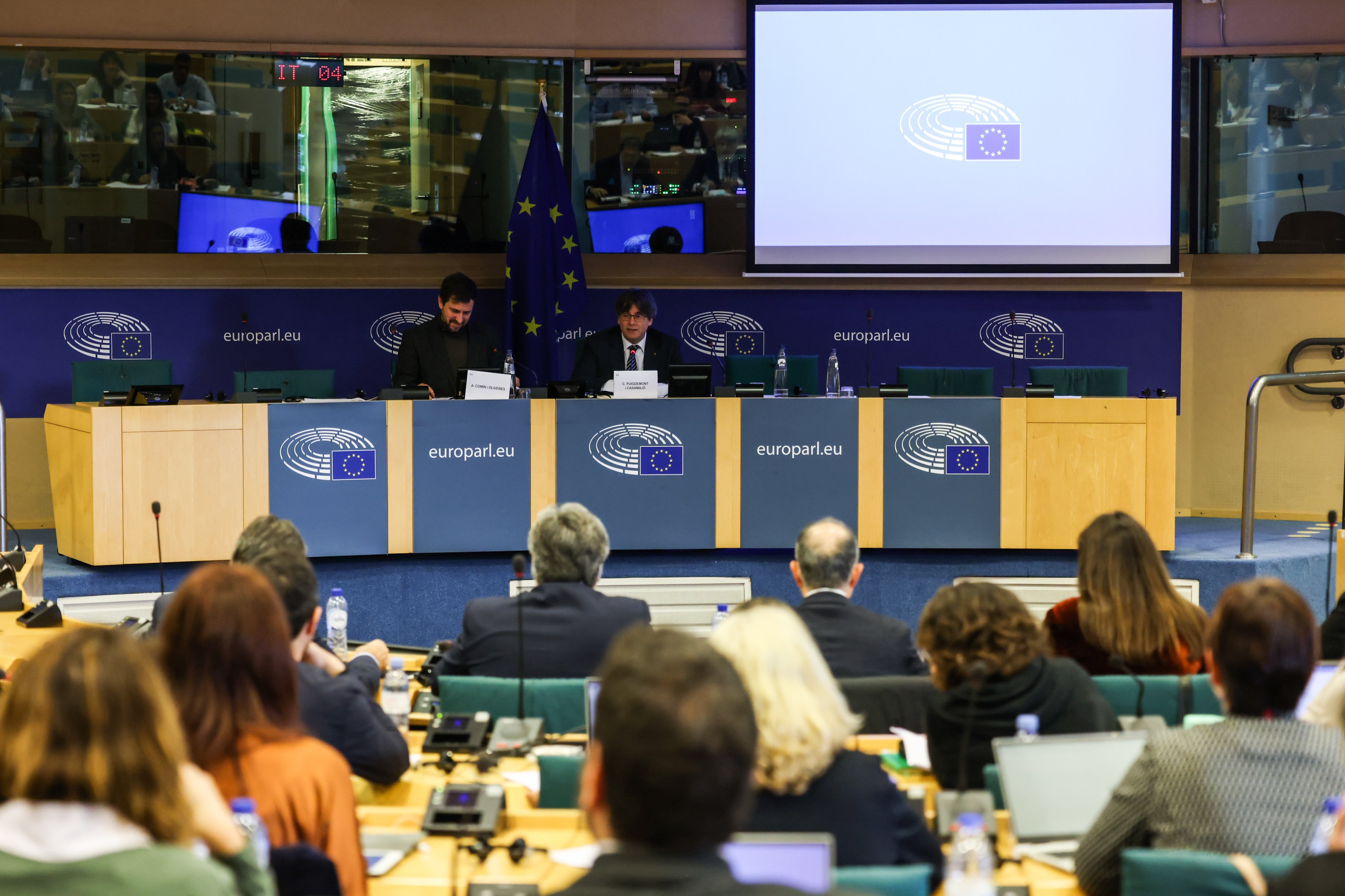Spain's turn holding the rotating presidency of the EU, which comes up during the second half of 2023, will be an occasion that Together for Catalonia (Junts) wants to take "full" advantage of to denounce the situation in Catalonia, MEP Toni Comín explained, after taking part in the meeting held in Brussels this Monday between all of the parliamentary groups of Junts: those of the Catalan Parliament, the Spanish Congress and Senate, and the European Parliament.
Comín explained that Junts parliamentarians will work in coordination across the different chambers to denounce Spain's "breaches of the rule of law" with respect to the Catalan independence movement, including exposing specific issues relating to the distribution of European funds in Spain and explaining the judicial imposition of a 25% Spanish language quota in the classrooms. As well, the party will endeavour to show up the double standard sometimes applied by European institutions - for example, in the fact that no mission has been sent to Spain to investigate the Pegasus case, unlike the cases of Greece, Poland and Cyprus. "We must denounce that this is a case of lack of impartiality that the European Parliament cannot afford," he denounced.
"Goal" against Aragonès
Comín also spoke about the Catalan language, referring to the visit by Catalan president, Pere Aragonès, to Brussels to meet with the EU commissioner of Justice, Didier Reynders, and the warning received by the head of the Generalitat on the obligation to comply with court decisions. "It is very disturbing that the Catalan president met with Reynders and that the headline afterwards was that Reynders demanded compliance with the 25% Spanish quota in schools", criticized the MEP, who appeared accompanied by party representatives in the Catalan Parliament, the Congress and the Senate, Albert Batet, Míriam Nogueras and Josep Lluís Cleries.
According to Comín, "you can't leave your goal open in this way, go to Brussels and in the end it allows the commissioner to score a goal of this magnitude, with a warning given from the European executive to the Catalan executive to apply a court ruling that should not be applied".
Electoral Commission, in contempt
Regarding the report that Spain's Central Electoral Commission (JEC) sent to the European Parliament last week denying the MEP credentials of Carles Puigdemont, Clara Ponsatí, Jordi Solé and Comín himself, the exiled politician warned that it shows that the JEC has taken on an attitude of contempt against the European justice system, which endorsed the MEPs' rights to hold their seats. "The incompatibility between European chamber regulations and some provisions of the Spanish electoral law has become more evident than ever," he asserted.
According to the MEP, when the European Parliament regulations ask about the procedure for the accreditation of the credentials of the deputies, what is asked of the member states is to certify that the MEP is not incurring in incompatibility with other positions, given that it is each country that establishes its own regime of incompatibilities. Instead of taking this approach, the JEC has made an argument that contradicts the EU General Court.
During the appearance, Comín accused the Spanish electoral body of being in contempt of European justice and expressed his confidence that the president of the Parliament, Roberta Metsola, would limit herself to applying the regulation. "The incompatibilities of positions have nothing to do with added conditions that they are attempted to use to block a fundamental right, which is the right to political representation," he criticized.
Comín also referred to the reform of the crime of sedition - "the true step of creating compatibility with the most advanced states in terms of rights and freedoms would be the repeal" of the law - and also mentioned the statements of former Spanish Socialist minister José Barrionuevo about Spain's state-supported GAL death squads of the 80s - "the GAL are incompatible with the EU. State terrorism is incompatible with being part of the club of democracies that make up the EU".

